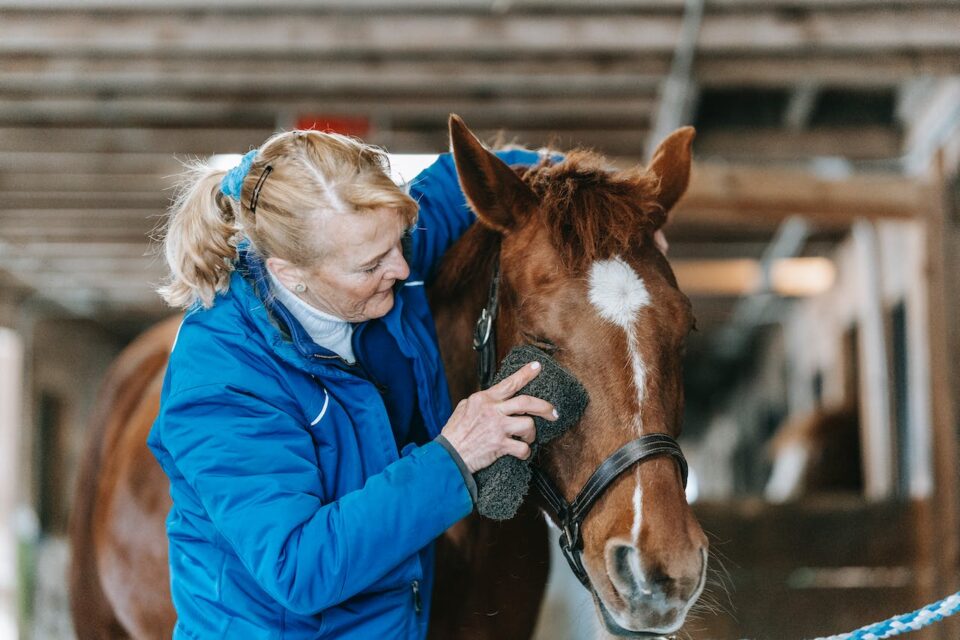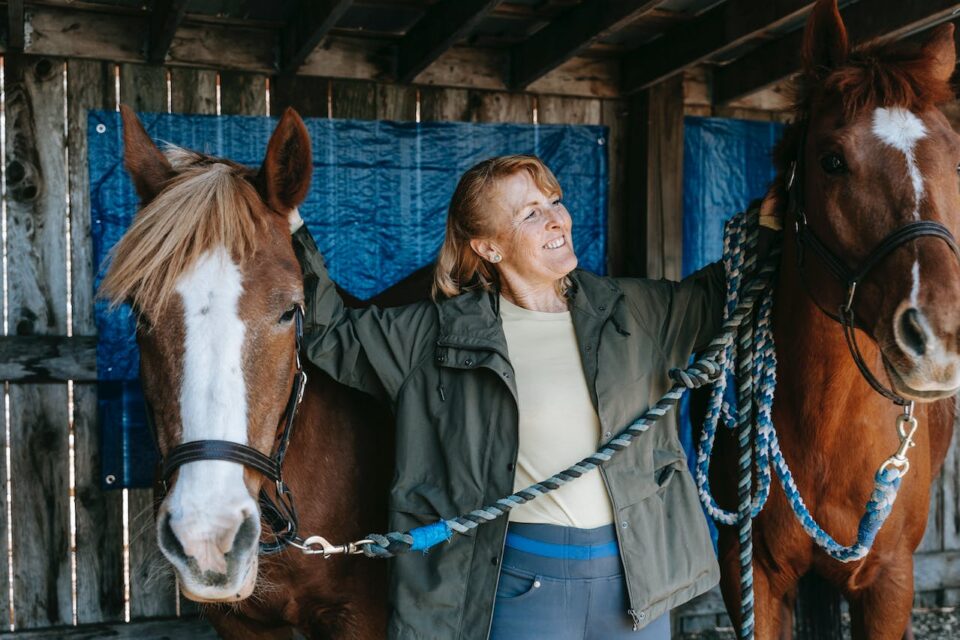Top Signs Your Horse Might Be in Pain
You’re out in the field, watching your horse graze peacefully. It’s a serene picture, but as a horse owner or caretaker, it’s crucial to be aware that sometimes, things aren’t as tranquil as they seem. Recognizing pain in horses is vital for their well-being. Unlike humans, horses can’t verbally express discomfort, so we must detect the subtle signs.
Identifying discomfort in horses can be challenging. Their instinct to mask pain, a throwback to their wild ancestors, means the signs can be easy to miss. It falls upon the shoulders of horse owners and caretakers to be vigilant and knowledgeable in detecting these signs.
Understanding the key signs indicating a horse might be in pain is essential. This knowledge can significantly impact your equine companion’s timely care and treatment. For additional support in equine care, resources like Gou Gou Pets offer valuable insights into horse health and pain management.
Stay tuned as we delve deeper into the top signs your horse might be in pain, helping you ensure the health and happiness of your beloved equine friend.
Changes in Behavior as Pain Indicators
Horses communicate a lot through their behavior, and changes in this area can indicate pain. Take note if your horse is suddenly less sociable with humans or other horses. A decrease in activity or showing signs of lethargy can also signal discomfort. Unusual aggression or irritability is not typical in an ordinarily calm horse and could indicate they’re not feeling well.
Depression or withdrawal in horses, much like in humans, can be a sign of underlying issues. Pay attention to their eating and sleeping patterns, too. Any significant changes suggest your horse is trying to tell you something’s wrong.
Ensure your horse’s health and comfort. Shop with us at Gou Gou Pets for quality equine care and well-being products.
Physical Signs of Pain in Horses
Physical signs are often more straightforward indicators of pain. A limping horse or one with an uneven gait signals discomfort. Similarly, if your horse shows reluctance to move or stiffness, especially after resting, it might be time to investigate further.
Visible swelling or injuries are clear red flags. Keep an eye on how your horse lies down or gets up – any difficulty in these simple movements can be telling. Also, excessive rolling or lying down more than usual can be signs of trying to relieve some pain or discomfort.
Related: Understanding Your Horse’s Lameness
Vocalizations and Sounds Indicating Pain
Horses aren’t big talkers, but they do communicate through sounds. An increase in whinnying or groaning could be their way of saying, “Hey, I’m not feeling great here.” Pay attention to unusual breathing sounds, which can indicate discomfort or respiratory issues.
Teeth grinding or making other oral noises is another sign to watch out for. It’s like they’re trying to tell you something is off. Also, note that silence can speak volumes if they stop vocalizing. And if you hear high-pitched or strained vocal sounds, it’s time to pay closer attention.
Related: Understanding Common Horse Skin Conditions
Grooming Habits and Pain Indications
Let’s talk about grooming habits. Changes in these can provide clues to your horse’s health. Over-grooming or neglecting grooming entirely are both red flags. If your horse starts rubbing against objects more frequently, it might be trying to relieve some discomfort.
A change in coat appearance can also hint at underlying issues. Keep an eye on how your horse reacts to grooming in specific areas. Any sensitivity or pain response is noteworthy. And, unfortunately, self-inflicted injuries from excessive licking or biting are clear signs your horse is trying to deal with some pain.
Related: Basic Guide To Safely Clipping Your Horse’s Coat
Recognizing Pain in Older Horses

Our senior equine friends have their own set of challenges. Common ailments like arthritis or joint pain are prevalent in older horses. Spotting the signs early can make a big difference in their quality of life. Managing chronic conditions with the proper care and medication is vital.
Tailoring your care to ensure the comfort of elderly horses is like adjusting our lifestyles as we age. Regular vet visits are crucial for aging horses. They help in early detection and management of any pain or discomfort they might be experiencing.
Importance of Regular Veterinary Check-ups
Routine veterinary check-ups are like the cornerstone of your horse’s health regime. They play a crucial role in detecting pain early. Discussing behavioral changes with your vet during these visits can provide valuable insights into your horse’s well-being.
Vets use various diagnostic tests and assessments to pinpoint the source of pain. This proactive approach is the essence of preventive healthcare, helping to address issues before they escalate. Working hand-in-hand with your vet to develop a pain management plan ensures that your horse receives the best care.
Looking for ways to support your horse’s health? Shop with us at Gou Gou Pets and discover a range of products tailored to your equine friend’s needs.
Managing Pain in Horses
When managing pain in horses, there’s a spectrum of approaches. The safe use of medications and treatments, always under veterinary supervision, is paramount. But there’s more to pain management than just medication.
Alternative therapies like massage or acupuncture can offer relief and comfort. Diet and exercise also play a pivotal role in managing pain, especially arthritis. And let’s remember comfort measures like soft bedding or environmental adjustments, which can make a difference in your horse’s quality of life.
Attentive Care for Your Equine Companion

Recognizing the signs of pain in horses is critical for any horse owner or caretaker. Being able to tell when your horse is in discomfort is essential for their well-being. This guide has walked you through various indicators, including changes in behavior, physical symptoms, and vocalizations, which can all signal that your horse might be experiencing pain.
The importance of attentive and informed care for horses cannot be overstated. Understanding your horse’s normal behavior and detecting when something is amiss is vital. It’s about being proactive in their healthcare and ensuring they receive the attention they need when they need it.
Gou Gou Pets offers information for additional support and resources in horse health and pain management. Whether you’re seeking advice on general horse care or specific pain management strategies, they have the resources to assist you. Visit Gou Gou Pets for more equine care resources and deepen your understanding of caring for your equine friend.
In closing, the health and happiness of your horse rest in your capable hands. You can ensure they lead a comfortable and joy-filled life by staying vigilant and educated. Remember, a healthy horse is a happy horse, and your attentive care makes all the difference in their world.
~Veterinarian Recommended